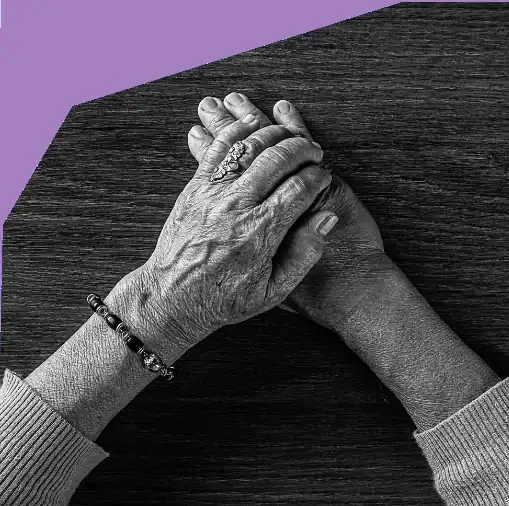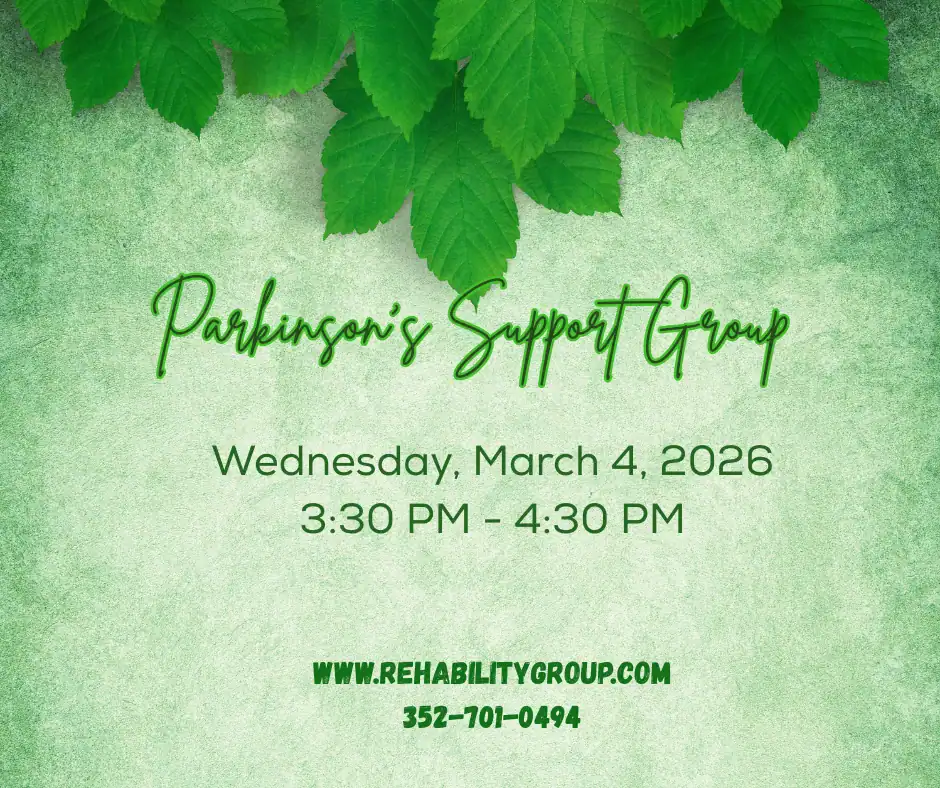Parkinson's Peer Support Group
WHEN: Meets the first
Wednesday of every month
11216 Spring Hill Dr, Spring Hill FL
TIME: 3:30 PM - 4:30 PM
Call (352) 701-0494 or complete registration box

About The Group:
This free group is for those individuals dealing with the day-to-day realities of having Parkinson’s Disease, as well as their family members and caregivers. Our PARKINSON’S SUPPORT GROUP is led by Rehability Occupational Therapist, Desirée Gagné. We meet on the first Wednesday of every month at Rehability.
The opportunity to swap stories and share resources can be truly therapeutic. If you’re feeling frustrated about life with Parkinson’s disease, being part of a support group can be one of the best ways to reduce stress and connect with others who can relate to your experience.
Our goal is to encourage group discussion and peer support, provide education related to living with Parkinson’s, offer resources, and guest speakers.
|
|

Can’t join in person? Join us online!
Date & Time: March 4th, at 3:30 PM Eastern Time (US and Canada)
Google Meet Info: https://meet.google.
What is Parkinson's Disease?
Parkinson’s disease is a degenerative neurological disorder that affects approximately one million people in the United States. This particular brain disorder causes unintended or uncontrollable movements, such as shaking, stiffness, and difficulty with balance and coordination.
The cause of Parkinson’s disease is unknown, but it is believed to be a combination of genetic and environmental factors. Although Parkinson’s disease can’t be cured, medications and other treatments may improve symptoms. While virtually anyone could be at risk for developing Parkinson’s, some research studies suggest this disease affects more men than women.
Symptoms of Parkinson's Disease
The experience of living with Parkinson’s is unique to each individual. Symptoms and progression vary from person to person. It’s difficult to predict which symptoms a person may get, when symptoms may appear, or how severe the symptoms may be.
Symptoms of Parkinson’s Disease include:
* Tremors, or rhythmic shaking, in hands, arms, legs, jaw, or head. The shaking may decrease when you are performing tasks.
* Muscle stiffness may occur in any part of your body. The stiffness of muscles may be painful and limit the range of motion in your limbs, affecting daily activities.
* Writing changes – you may notice fine motor tasks becoming more difficult and writing becoming smaller.
* Speech changes – you may speak softly, quickly, slur, or hesitate before talking. Your speech may be more of a monotone rather than have the usual speech patterns.
* Posture, coordination, and balance issues – leading to increased risk for falls
How can Physical & Occupational Therapy help?
Physical and Occupational Therapists can be of great benefit to those with Parkinson’s disease (PD). By helping to increase strength, endurance, and balance, one of the main goals in therapy is to help people with PD maintain their usual activities for as long as possible.
Physical Therapists (PT) are movement experts. They can help with amplitude training, reciprocal balance training, and stretching to help make mobility safer.
Occupational Therapists (OT) teach you the skills you need for daily life — whether you’re at home, work, or out with friends. An occupational therapist can also recommend useful changes to your home to improve safety.
Aquatic therapy may also be very helpful for someone that is unable to tolerate land-based therapy. Think of it as therapy in the water! The warmth of the water is therapeutic to reduce rigidity, stiffness, and pain that Parkinson’s patients often experience. Both therapies should also provide ongoing education to help you maintain your independence and safety in your home and community.
This is intended to provide general health information and is not intended to provide individual-specific medical advice, diagnosis, or treatment.

 This session features JoAnn Hartge, one of our own group members
This session features JoAnn Hartge, one of our own group members  , sharing practical strategies for:
, sharing practical strategies for: Preparing for doctor appointments
Preparing for doctor appointments